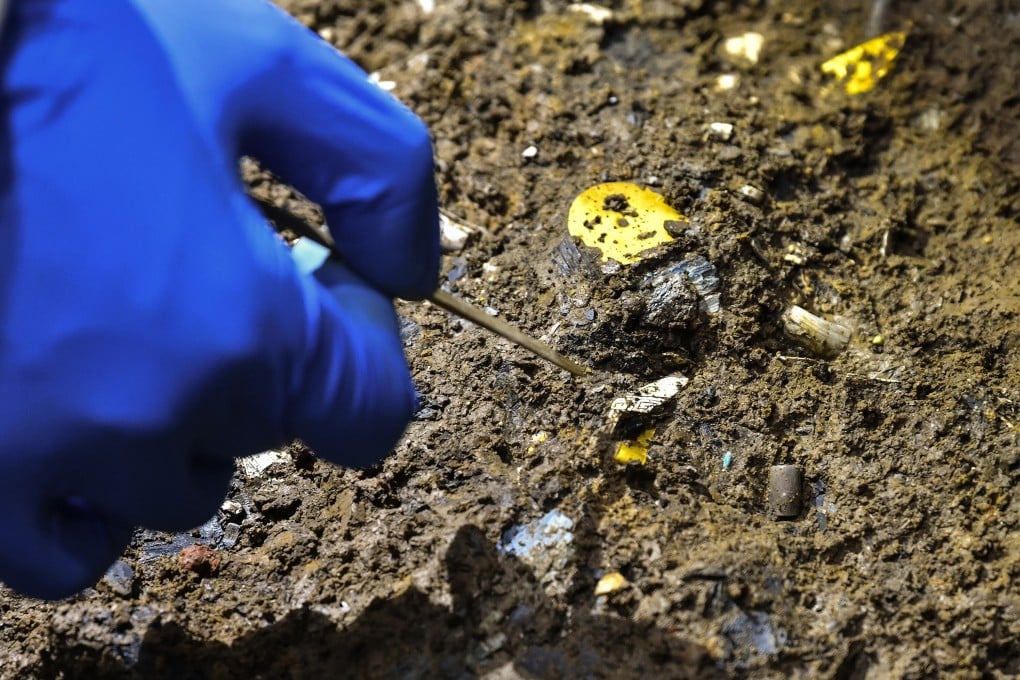Sanxingdui: researchers say newly found sites in China date back as far as 3,200 years
- Archaeologists are still excavating six sacrificial pits that were recently discovered
- Some have been found to be from the period of the late Shang dynasty

Archaeologists say recently uncovered sites at the Sanxingdui Ruins in southwest China date back 3,000 to 3,200 years, according to state media reports on Tuesday.
Much is still unknown about the ancient civilisation at Sanxingdui, located in what is now Sichuan province on the upper reaches of the Yangtze River.
The latest finding was made by a joint team from the Sichuan Provincial Cultural Relics and Archaeology Research Institute and Peking University.
They used carbon dating to assess 14 of 73 samples excavated from six newly discovered sacrificial pits at the Sanxingdui site.

03:06
Archaeologists find treasures from mystery civilisation that could rewrite Chinese history
Pit No 4, where most of the analysed samples were found, was dated to between 1199BC and 1017BC – coinciding with the late Shang dynasty in northern China.